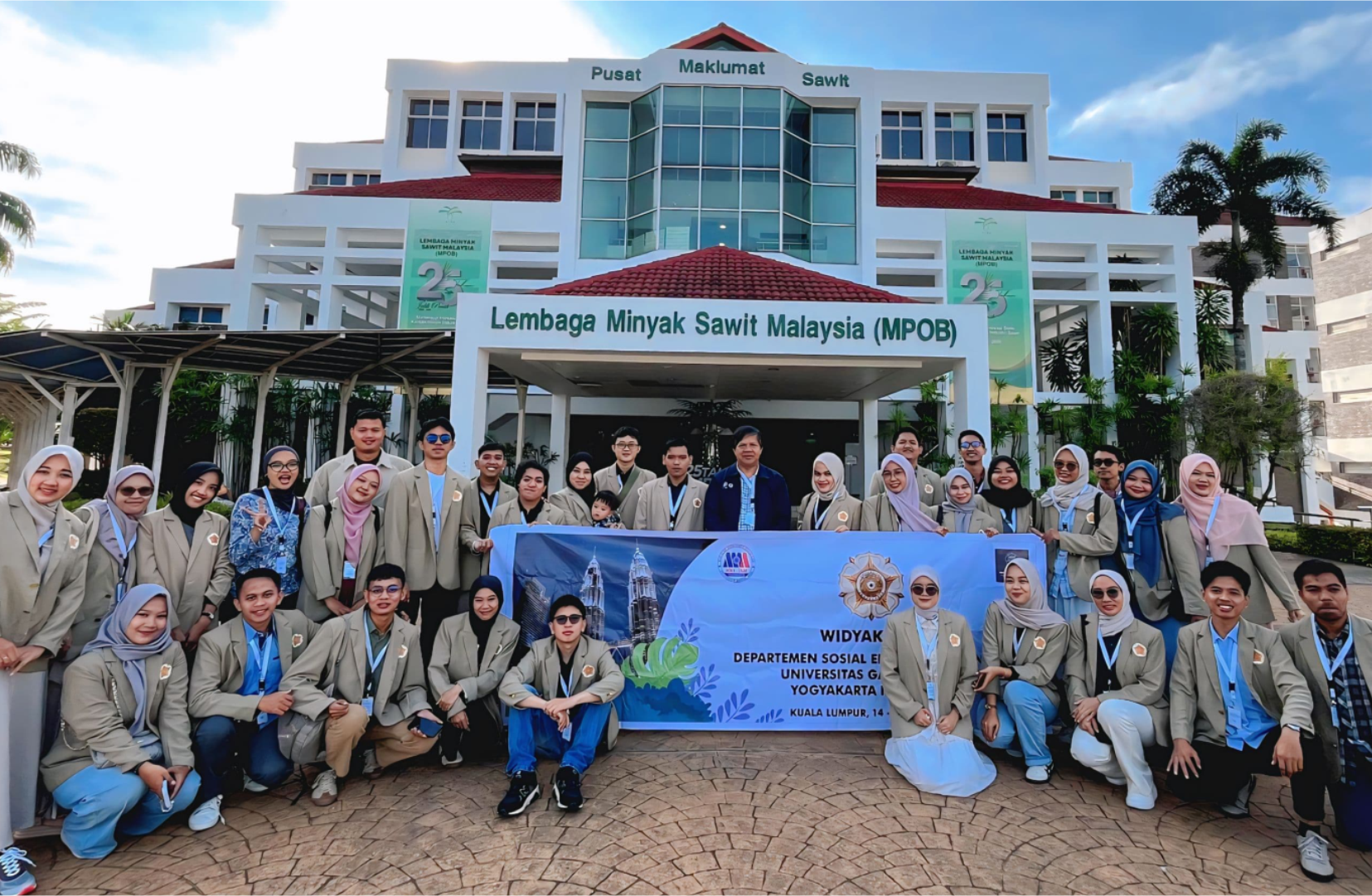
The Department of Agricultural Socio-Economics (Sosek), Faculty of Agriculture, Universitas Gadjah Mada (UGM), continues to demonstrate its commitment to broadening academic horizons and strengthening global networks through the implementation of the Widyakarya program—an international scientific visit. From July 4 to 17, 2025, two graduate programs under the department, namely the Master of Agricultural Economics (MEP) and the Master of Agribusiness Management (MMA), jointly conducted a Widyakarya in Malaysia.
This activity is an integral part of the curriculum designed to provide students with direct experience in understanding the dynamics and challenges of the global agribusiness landscape. More than just observational visits, the Widyakarya requires students to compile academic reports based on their learning and site visits. During this program, the students were accompanied by a senior lecturer and Professor at the Faculty of Agriculture UGM, Prof. Dr. Jamhari, S.P., M.P.
Over the two-week program, the group visited several leading institutions and companies in Malaysia, including the Malaysian Palm Oil Board (MPOB), Gardenia Factory, the Malaysian Agricultural Research and Development Institute (MARDI), and Beryl’s Chocolate Factory. Additionally, educational tourism destinations such as Batu Caves, Genting Highlands, and Central Market were included in the itinerary to enrich cross-cultural and socio-economic understanding.
This visit provided valuable insights for students into best practices in agriculture and agribusiness industries abroad. Malaysia was chosen as the destination due to its geographical proximity and socio-economic similarities with Indonesia, as well as being home to several multinational agribusiness companies also operating in Indonesia. This added contextual learning value and opened up future opportunities for international collaboration.
“In promoting internationalization, it is essential for students to directly observe how companies operate overseas. Malaysia is a strategic choice because it is relatively accessible and relevant to Indonesia’s agribusiness context,” explained Prof. Jamhari.
This Widyakarya activity aligns with several Sustainable Development Goals (SDGs), including:
SDG 4: Quality Education, by providing relevant and contextual learning experiences on a global scale.
SDG 8: Decent Work and Economic Growth, by equipping students with knowledge and insights into the agribusiness industry as a foundation for future professionalism.
SDG 17: Partnerships for the Goals, through strengthening academic and industry networks with institutions in Malaysia.
Through this international Widyakarya program, it is expected that graduate students of the Department of Agricultural Socio-Economics will not only enhance their academic competence but also gain a deeper understanding of global agribusiness challenges and opportunities.
Written by:
Adhika Hafizh Prasada, S.P.
Website Administrator, Department of Agricultural Socio-Economics, Faculty of Agriculture UGM
